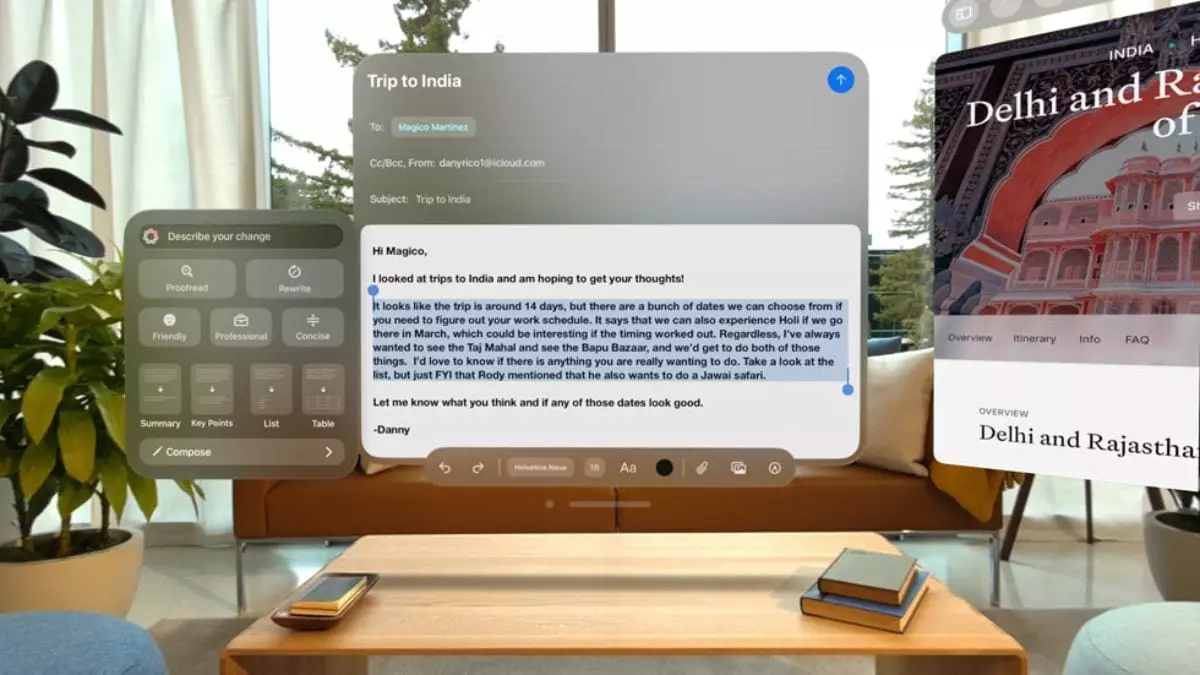Yet again, Apple demonstrates its relentless pursuit of innovation with the release of the visionOS 2.4 update for the Apple Vision Pro. However, while the technological community buzzing with excitement might herald it as a marvel, a critical examination reveals a trend that borders on alarming. This update introduces a suite of AI-driven features intended to enhance the user experience, but at what cost to our cognitive engagement and privacy?
AI-Powered Features: A Double-Edged Sword
The introduction of capabilities such as Writing Tools and Image Playground appears to be Apple’s attempt to streamline productivity through artificial intelligence. Writing Tools’ promise to simplify and enhance writing through automatic composition and proofreading is undeniably appealing. Nevertheless, one must question the implications of relying on AI to dictate our communication. Are we genuinely enhancing the creative process, or are we merely substituting critical thinking and originality with algorithm-generated content? The convenience of generating lists, tables, and summaries combats the traditional skills of writing and thinking deeply, possibly leading to a generation less adept in articulating their own thoughts.
Moreover, the Image Playground uses generative AI to create visuals from descriptions, allowing users to play with creativity. But let’s consider the ramifications: the art of photography and the value of original artistic expression are being overshadowed by machine-made images. While these AI features facilitate creativity, they simultaneously threaten to erode the very foundation of artistry itself. We could risk breeding a society that comes to view genuine creativity as unnecessary when a few commands can conjure visual masterpieces on demand.
Privacy in the Age of Intelligence
Apple’s commitment to user privacy seems to be both a promise and a paradox. With statements emphasizing that photos and videos remain private and that data is not shared with the company, the message is clear—that user trust is paramount. However, this assurance feels reactive at a time when privacy breaches are rampant in the tech industry. The reliance on on-device processing is commendable, but as Apple embraces the broader capabilities of cloud computing for more complex tasks, users must remain wary. What assurances do we have that our data is only harnessed for our benefit and not exploited or misused?
Additionally, as Apple integrates features like Smart Reply and AI-generated memory movies, the spectral presence of the large-scale AI model looms large. The allure of convenience and efficiency should not blind users to potential risks. In this quest for seamless communication and effortless productivity, we might unwittingly trade autonomy for artificial ease.
The Path Forward: Balancing Innovation and Integrity
It becomes increasingly crucial for consumers to engage critically with these updates and features. As gadgets grow smarter and more integrated into our lives, we must demand a balance—one that weighs the benefits of technological advancement against the importance of preserving the human elements of creativity, expression, and privacy. While visionOS 2.4 presents captivating technology, it also serves as a wake-up call, urging us to reflect on how deeply we are willing to integrate AI into our everyday lives. Will we become creators or merely participants in a reality crafted by algorithms? The answer lies in our hands.


Leave a Reply